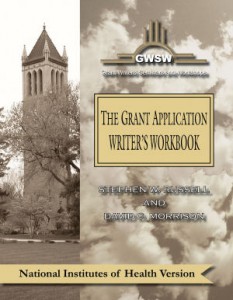Over the past several months, we have posted a number of blogs related to relatively common errors and misuses of words in the English language that have the potential to alter the meaning of an applicant’s intended usage, usually not to the applicant’s benefit. In this respect, we are firm believers in the fundamental concept that, in grant applications, an applicant should write exactly what s/he means, and mean exactly what s/he writes. While skeptics might argue that the use of particular language is secondary to the all-important science, we would respectfully disagree. In this regard, we earlier referenced the observations of Andreas Johansson, a Swedish journalist/writer who has written a scholarly article, Thinking and Communicating with Clarity and Precision. In that article, he points out that “Language and thinking are closely entwined. Like either side of a coin, they are inseparable.” He further points out that: “Intelligent people strive to communicate accurately in both written and oral form, taking care to use precise language, defining terms, using correct names and universal labels and analogies.” In this latter respect, remember that, as Johansson has so clearly pointed out: “When you hear (read) fuzzy language, it is a reflection of fuzzy thinking.”! See for example, Part 4 in our Dangerous Words to Avoid blog series.
In today’s post, we would like to discuss the use of the very familiar word grant. The Merriam-Webster dictionary usually defines the word grant as a verb in which something is bestowed on someone; however, in our case, a more accurate definition is provided by the Merriam-Webster thesaurus which defines grant as “a sum of money allocated for a specific use by official or formal action”. A number of synonyms to grant are also provided, including, among others: “allocation, allotment and appropriation”. Most federal funding agencies would define a grant as something “awarded” to an applicant, or group of applicants, following critical evaluation of a grant proposal. When considering that most of this information will likely come as relatively common knowledge to most readers of this blog post, it remains even more puzzling why the word grant is so commonly misused.
In this respect, a surprising number of applicants refer in their grant proposals to the application itself as being an actual grant. For example: “In this grant, we have outlined our strategy to define the underlying mechanism responsible for…”, or “The underlying scientific premise of this grant is that…”. When used in this way, an applicant is making the implicit assumption that the outcome of the evaluation of the proposal will be a grant, or award. With funding rates in the 10% range, there is certainly no assurance that an application will necessarily translate to a funded award.
Perhaps an even more egregious use of the word grant is the relatively common phrase “grant writer” with the implication being that the subject of this phrase (writer) will actually write a grant. Another way of stating this would be that the writer is writing an award (since a grant is, by definition, an award) and, of course, this would be impossible. In fact, as we are constrained to point out to applicants on more occasions than we like, “You are not writing a grant. If that was all there is to it, everyone would be funded! In fact, you are writing a grant proposal. Only if it is funded, will an award/grant materialize.
We would respectfully submit that this is among the most common misuses of the word grant that we have encountered with applicants. In fact, we ourselves are not entirely without fault, given that the name of our organization is Grant Writer’s Seminars and Workshops. Moreover, in the early days of our organization, our seminar was entitled “Write Winning Grants”. It was not until a participant in one of these seminars wrote to us to inform us of how invaluable the program had been to him (very gratifying, of course); however, this same participant also indicated to us, “I almost decided not to attend since only those who are relatively naïve would think about writing a grant!” At this point, we would certainly not disagree. (Our seminar program is now appropriately entitled “Write Winning Grants Proposals”.)
If our readers would train themselves to substitute the word award every time there is a temptation to use the word grant, there would never be a problem in the misuse of this important word in the common vernacular of grant applicants.

